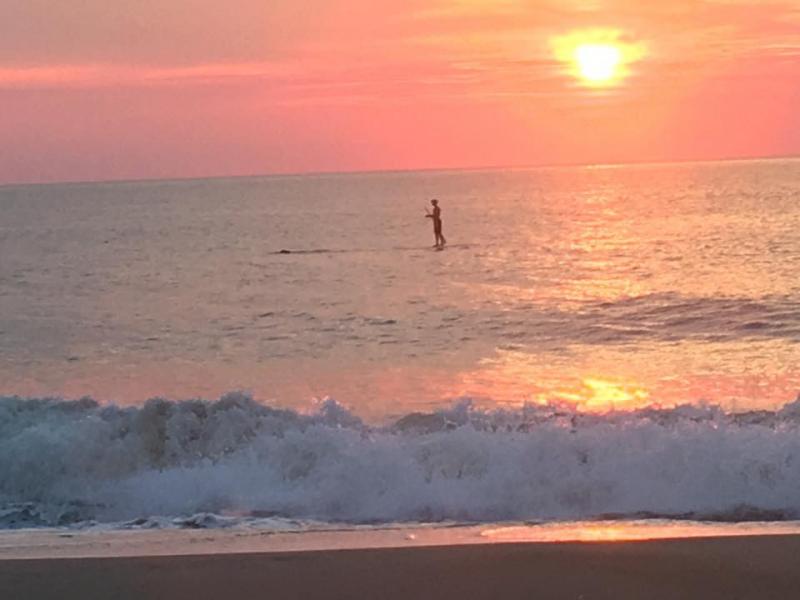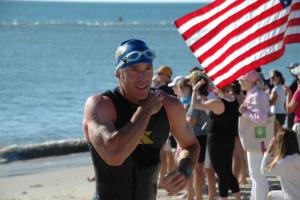How to become a successful open water swimmer
In my last article I discussed some training techniques that can help swimmers become better open water swimmers. Now let’s talk about the mental side of open water swimming. This normally gives pool swimmers the biggest problem. There are no walls or lane lines to grab onto if you get tired, and there is no shallow end, so you can’t stand out there either.
The fear of relying on your own physical ability for what could be life or death can paralyze individuals, and that fear can snowball when fatigue sets in. Athletes will start to hyperventilate, and that will limit the amount of oxygen that will get to their muscles and brain. Panic will start to set in, and hyperventilating will get worse.
That scenario is a normal occurrence for pool swimmers experiencing their first open water swim. Let’s discuss some factors that could prevent that scenario from happening.
Wetsuit: If you swim in the open water with a wetsuit – I recommend it – your buoyancy level is completely different from what it is in the pool. In a wetsuit, you can stay afloat for hours with little to no effort. Swimming also becomes easier because your hips are so much higher in the water, and you don’t have to maintain a steady kick to keep the hips up; the wetsuit does it for you. That will save energy and should also give the athlete a sense of comfort and safety out there.
Group Swim: How will you react to other swimmers racing so close to you in the open water? Will you panic? You can get kicked by another swimmer, hit, pulled under, or have your goggles knocked off.
Staying relaxed while so many other swimmers are knocking into you takes practice. Being able to swim defensively is also a good tool to have in cramped swimming conditions. Swimming defensively means always having your arms around your head, so if you do get kicked or hit your arms can block the blow. It takes practice.
Waves: Some swim starts require you to start on the beach and work your way through the break zone of the waves. This can stop some swimmers in their tracks if they are hit hard by a few waves while entering the water. Getting through the break zone is a skill that is learned and once learned the mental anguish of swimming in the ocean can subside. The best place to learn this skill is to attend an open water swim clinic or hire a coach to take you out for an individual session specifically to work on getting through the break zone.
Just because you can swim 3,000 yards in a pool does not mean you will be a successful open water swimmer. It takes work, and even if you don’t have the opportunity to do any open water swimming in your area you can still work on the skills required to be successful out there. If you do live by a lake, bay, or ocean, get out there and swim! Just make sure you have some support with you, a kayaker or paddle boarder. Put in the work and it will pay off for you!


















































